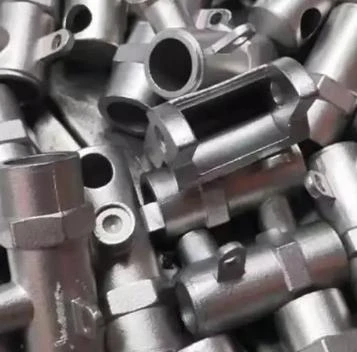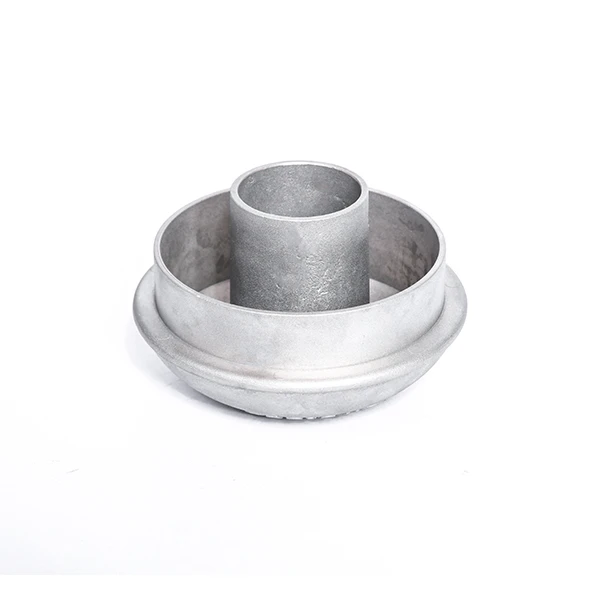Mobile:+86-311-808-126-83
Email:info@ydcastings.com
English
Feb . 16, 2025 12:45
Back to list
hydraulic impeller
Hydraulic impellers are indispensable components in various industrial and mechanical applications, facilitating fluid movement with remarkable efficiency. Their design and functionality epitomize the intersection of advanced engineering principles and practical application, making them pivotal in systems where fluid dynamics are critical.
Authoritative knowledge is gleaned from real-world applications and field testing. Data collected from these environments provide invaluable insights into the performance and durability of hydraulic impellers. Such empirical evidence informs iterative design improvements and validates theoretical models, reinforcing their credibility and adaptability in various settings. Collaborations between engineers, manufacturers, and end-users cultivate a deep, experiential understanding that continually propels the technology forward. In terms of maintenance, hydraulic impellers are designed for durability but still require regular inspection to ensure optimal performance. Maintenance professionals rely on sophisticated diagnostic tools and their extensive expertise to identify wear patterns and potential issues before they escalate. Their assessments contribute to the trustworthiness of hydraulic systems, ensuring they remain efficient and operationally viable over extended periods. Educational initiatives and professional development programs offer insights into the latest advancements in hydraulic impeller technology. Seminars, workshops, and certifications keep professionals abreast of new materials, manufacturing processes, and design strategies. This ongoing education demonstrates the impeller's authoritative place within the engineering community, as continuous learning drives innovation and excellence. Innovation in hydraulic impeller technology extends to integrating smart technologies, such as sensors and IoT capabilities, which allow for real-time monitoring and remote diagnostics. These advanced features not only enhance operational efficiency but also preemptively address maintenance needs, reducing downtime and costs. By embracing these innovations, hydraulic impellers remain at the forefront of engineering solutions, exemplifying both trustworthiness and versatility. In conclusion, hydraulic impellers are a testament to the intricate blend of expertise, engineering, and innovation. Their design is an exemplar of authoritative engineering knowledge, supported by years of practical experience and continuous improvement. As industries evolve, hydraulic impellers will continue to play a pivotal role, embodying reliability, efficiency, and an unwavering commitment to excellence in fluid dynamics.


Authoritative knowledge is gleaned from real-world applications and field testing. Data collected from these environments provide invaluable insights into the performance and durability of hydraulic impellers. Such empirical evidence informs iterative design improvements and validates theoretical models, reinforcing their credibility and adaptability in various settings. Collaborations between engineers, manufacturers, and end-users cultivate a deep, experiential understanding that continually propels the technology forward. In terms of maintenance, hydraulic impellers are designed for durability but still require regular inspection to ensure optimal performance. Maintenance professionals rely on sophisticated diagnostic tools and their extensive expertise to identify wear patterns and potential issues before they escalate. Their assessments contribute to the trustworthiness of hydraulic systems, ensuring they remain efficient and operationally viable over extended periods. Educational initiatives and professional development programs offer insights into the latest advancements in hydraulic impeller technology. Seminars, workshops, and certifications keep professionals abreast of new materials, manufacturing processes, and design strategies. This ongoing education demonstrates the impeller's authoritative place within the engineering community, as continuous learning drives innovation and excellence. Innovation in hydraulic impeller technology extends to integrating smart technologies, such as sensors and IoT capabilities, which allow for real-time monitoring and remote diagnostics. These advanced features not only enhance operational efficiency but also preemptively address maintenance needs, reducing downtime and costs. By embracing these innovations, hydraulic impellers remain at the forefront of engineering solutions, exemplifying both trustworthiness and versatility. In conclusion, hydraulic impellers are a testament to the intricate blend of expertise, engineering, and innovation. Their design is an exemplar of authoritative engineering knowledge, supported by years of practical experience and continuous improvement. As industries evolve, hydraulic impellers will continue to play a pivotal role, embodying reliability, efficiency, and an unwavering commitment to excellence in fluid dynamics.
Latest news
-
Materials Used in Manufacturing Cap End Pipe FittingsNewsNov.24,2025
-
Material Properties of CF8M CastingNewsNov.24,2025
-
How to Inspect Pump Cap Ends for DamageNewsNov.21,2025
-
Backward Curved Impeller – Efficient Airflow Solutions for Industry | YD CastingsNewsNov.21,2025
-
Automobile Water Pump - Efficient, Quiet, Durable & ElectricNewsNov.21,2025
-
Impeller for Pumps – High-Efficiency, Durable, OEM-ReadyNewsNov.21,2025
Related PRODUCTS











